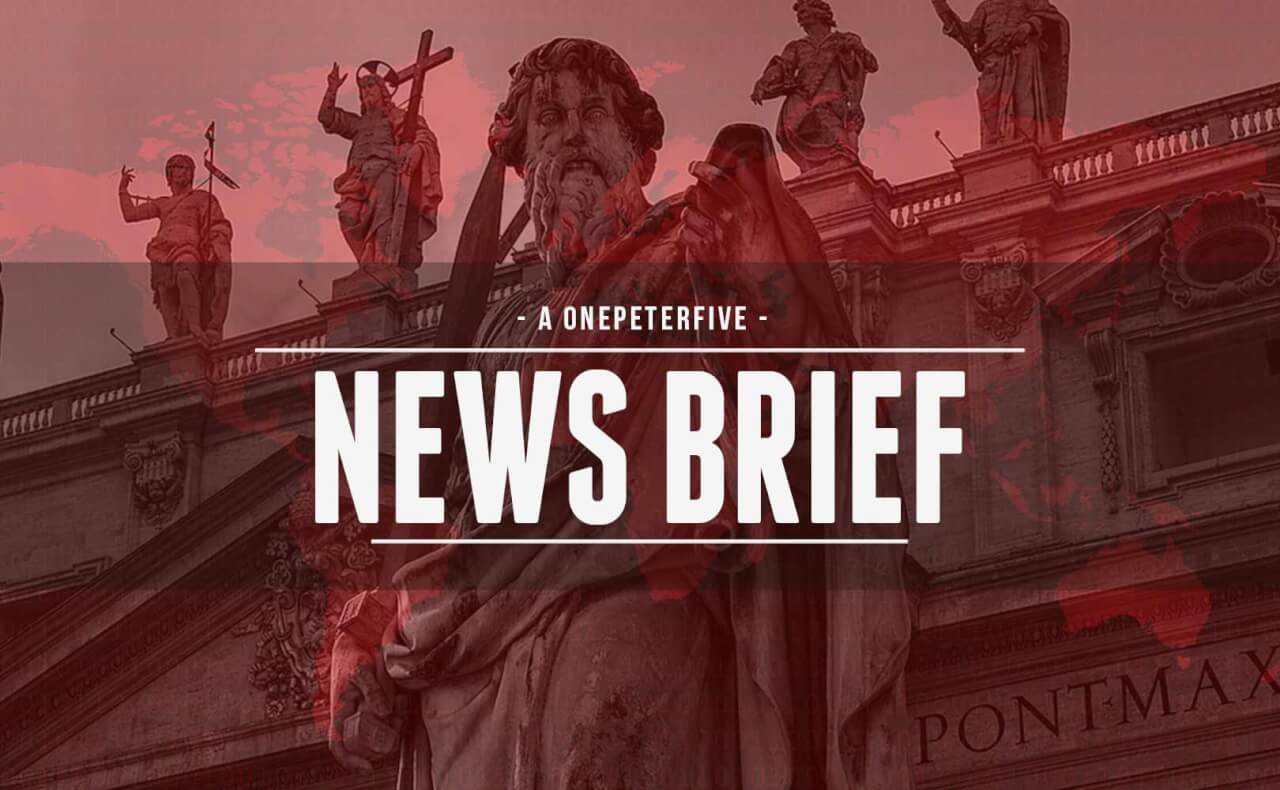As the Austrian Catholic news website Kath.net reports today, the Congregation for the Doctrine of the Faith – with explicit approval of Pope Francis – rejected the 22 February 2018 pastoral handout concerning the admittance, in individual cases, of Protestant spouses of Catholics to Holy Communion as it had been approved by the German Bishops’ Conference under the leadership of Cardinal Reinhard Marx. We have confirmed their report with our own sources close to the Vatican.
Kath.net relies for its story on “well-informed Vatican sources,” according to which this handout “has been sent back to the sender.” Only last week, there had come out reports about a letter written by seven German bishops and addressed to the Vatican, in which they ask for clarification in this matter. One of these seven bishops, Bishop Stefan Oster, had subsequently explained in detail what the objections of these bishops were.
As Oster explained in an article published in his own diocesan newspaper, “We wish to receive a clarification as to whether this expansion of the interpretation of grave emergency situations is correct.” It does not seem a “simple” thing to “share the full Catholic understanding of the Eucharist,” while at the same time remaining in another denomination; and “thus to preserve for oneself, at the same time, that confession’s own understanding, let’s say of the Last Supper.” Oster does not see how this inner contradiction could – or should – be preserved of holding two different, incommensurate understandings of Holy Communion at the same time.
Several other prelates, among them Cardinal Walter Brandmüller and Cardinal Paul Josef Cordes, had raised their voices in opposition to the German Bishops’ Conference and its new push for pastoral novelties with regard to intercommunion.
Cardinal Gerhard Müller, himself the former Prefect of the Congregation for the Doctrine of the Faith, also recently insisted that the German bishops, with their new handout, should not lead the faithful “into confusion.” He explained that any ecumenical effort has to lead to a conversion to the Catholic Faith:
There would be only ecumenical progress if we came closer to the great goal of the unity of Christians in the One, Holy, Catholic and Apostolic Church. The precondition for this, however, would be the recognition of the sacramentality of the Church and of the fact that we have no power of disposal over the Sacraments. Here, one would first have to clarify whether bishops’ conferences do not step over their own area of authority in individual cases.
Update 19 April: According to Kath.net, the German Bishops’ Conference denies now in a press release the claim that the Vatican has rejected its handout. It states “Reports according to which the handout has been rejected in the Vatican by the Holy Father or some dicasteries, are false.” The German Bishops’ Conference also insists that the finalized pastoral handout concerning intercommunion shall only be further discussed at the next meeting of the bishops’ standing council on 23 April and that it has not yet been sent to Rome. Additionally, Cardinal Reinhard Marx, the head of the German bishops, has now been invited by Pope Francis to meet with him in Rome in order to discuss the matter in person. Moreover, Edward Pentin, Rome Correspondent of the National Catholic Register, now confirms the original story with his own sources and says that Pope Francis does not wish that this CDF letter be made public.
Update, 20 April: The Austrian news website Kath.net now re-affirms its initial report and reveals some more details concerning the papally approved CDF letter. With reference to a “German Church insider,” it states that the German bishops were told about the pope’s express wish not to publish a document concerning the matter of intercommunion. The German source who knows the content of the CDF letter also calls yesterday’s statement of the German bishops denying the Vatican’s intervention a “red herring.”
As Kath.net reports with reference to published and unpublished sources, not only Cardinal Marx will now travel to Rome for an audience with the pope, but also Cardinal Rainer Woelki (Cologne) and Bishop Felix Genn (Münster).
.


